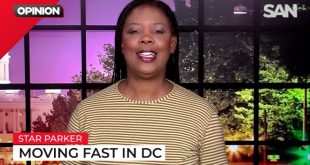The city of Hartford, Connecticut, required pregnancy centers to post signs and tell clients that their facilities didn’t have a licensed medical provider on site to provide or supervise all services. One pregnancy center, Caring Families, does have medical providers on site and doesn’t provide the kind of services that require such supervision.
But the city apparently didn’t care, and, according to Alliance Defending Freedom (ADF), exempted abortion facilities and community health centers from the requirements. Wasn’t it obvious to the city council that treating pregnancy centers differently was discriminatory? Apparently, Hartford chose to wait until a pregnancy center filed a lawsuit. After Caring Families started legal action, the city backed down. From the ADF:
The city of Hartford has settled a lawsuit filed by a faith-based pregnancy center, agreeing that the center isn’t subject to a constitutionally suspect law that would have forced the center to post messages that undermine its life-affirming message. The settlement prompted Alliance Defending Freedom attorneys representing the center, Caring Families, and attorneys representing the city to jointly and voluntarily dismiss the lawsuit on Friday.
…
As the settlement agreement in Caring Families v. City of Hartford states, “The City agrees that because Caring Families has licensed medical personnel on site at all times to provide and/or supervise such medical services, it does not consider Caring Families to be a ‘pregnancy services center’ under the Ordinance and will therefore not attempt to enforce the Ordinance—as to either its required disclosures or its advertising requirements—against Caring Families.”
In a similar case, the U.S. Supreme Court ruled that California’s law compelling medically licensed crisis pregnancy centers, in the business of saving lives, to post a notice informing women that taxpayers would pay for their abortions “unduly burdens protected speech” and “imposes a government-scripted, speaker-based disclosure requirement that is wholly disconnected from the State’s informational interest.”
 CURE News and Clergy Blog News and Commentary for Christians
CURE News and Clergy Blog News and Commentary for Christians



